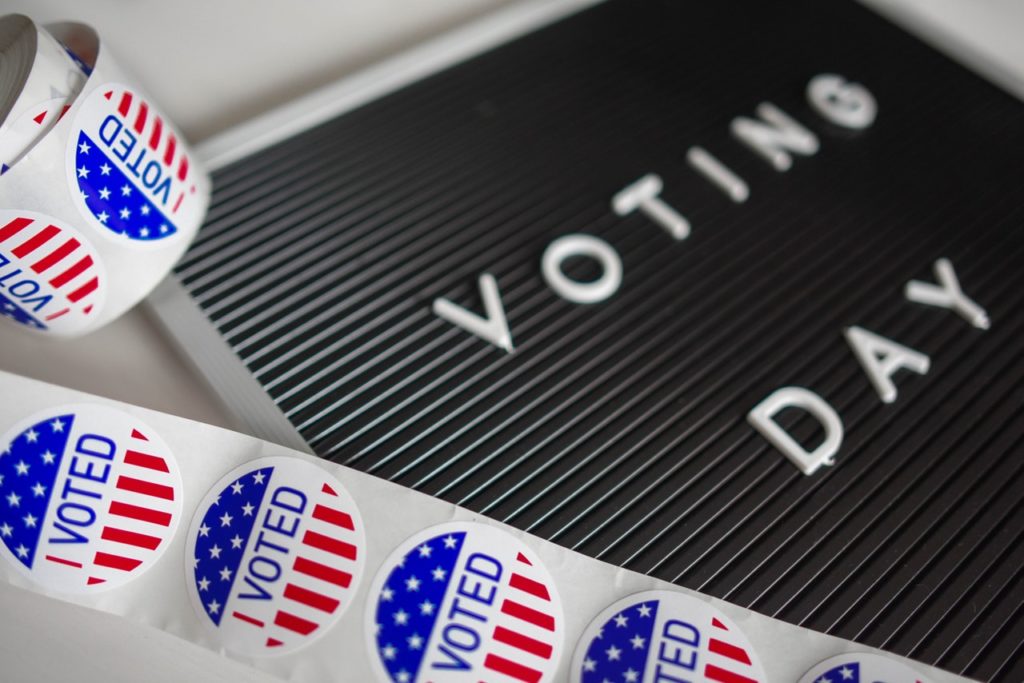
15 Persuasive Essay Topics About Controversial Issues
Controversial issues can be a great way to get your students engaged, and they also make perfect persuasive essay topics.
Whether your goal is to explore the controversial issue itself or to teach the mechanics of persuasive writing, controversial issues and persuasive essays go hand in hand.
In order to write a good persuasive essay, you need to feel passionately about an argument. Having a good prompt and a good issue let’s you do that.
The flip side is that to show you really understand a controversial issue, you have to make an argument about it. A persuasive essay is the perfect summative assessment to see whether a student really understands the issue and can articulate their opinion.
Below, I’ll share a list of 15 persuasive essay topics and writing prompts that you can use with your class. If you scroll down to the bottom, I’ll also wrap up with some other methods and resources that can help you teach these controversial issues and how to write argumentative essays.
List of Persuasive Essay Topics and Writing Prompts
So, without further ado, here’s a list of questions that would make great writing prompts for a persuasive essay.
Should the Government Ban or Regulate Indecency on Television?
This is a controversial issue as old as the airwaves. As long as there’s been radio and television, there have been arguments about what is acceptable and what is obscene.
If you’re studying constitutional law or taking AP U.S. Government, you’re probably familiar with George Carlin and his famous “Seven Dirty Words” bit. But for the average student, this persuasive writing topic is still relevant.
Think about the music you hear on the radio. What is bleeped out? Why do we have “dirty” and “clean” versions of hit songs? Why are some television shows allowed to curse, be violent, and have nudity, while others don’t?
You could definitely take this broader topic and make it more specific and timely by relating it to a current hit song or television show that your students are in to.
But however you phrase it, whether or not the government should regulate indecency on television is a great persuasive essay topic.

Should Voters Be Required to Show Identification?
For the last few years, this has been an increasingly hot topic as individual states have moved to implement various forms of voter ID laws. On the face of it, this sounds reasonable, but underneath the surface there are arguments about voter suppression and exclusion.
Is voter fraud a problem that needs to be dealt with? An answer to this question should likely depend on some research about the extent to which people are impersonating voters to enter the voting booth.
What kind of ID should be required? Different types of ID have different requirements to obtain them, and so this choice matters to.
Finally, how do you deal with the potential for discriminatory exclusion? Some people – the elderly, the young, low income – are more likely to not have ID, and for some people it can be a financial burden to secure the documentation necessary to get an ID.
This ongoing policy debate about Voter ID laws makes for a great argumentative essay topic.

Should Race Be a Factor in Admissions to Universities?
Affirmative action has been a controversial issue for decades. Initially, the debate was over whether or not strict racial quotas were an appropriate way to make up for centuries of discrimination and segregation.
These early forms of affirmative action were struck down by the Supreme Court in Regents of the University of California vs Bakke, but other forms of affirmative action survived. Bakke affirmed that universities could use race as one factor in their admissions, and universities have been trying to strike the proper balance since.
A few years ago, the U.S. Supreme Court weighed in again – in Fisher v. University of Texas – and upheld more holistic processes designed to ensure diversity. But in the aftermath of Fisher, a group of students have brought a case against Harvard that is likely destined to find itself at the Supreme Court soon.
Which begs the original question – is it appropriate for a University to use race as a factor in admissions in order to guarantee diversity of its student body?

Should the Government Limit the Amount of Money Spent on Political Campaigns?
The influence of money in politics is another issue that has been fought out in the Supreme Court over the last 50 years. Money in politics is nothing new, and there are plenty examples of its corrupting influence in the early history of the United States.
But since the 1970’s, the federal government has struggled to strike a proper balance between regulation and free speech. Early campaign finance laws sought to restrict spending, and that was ultimately overturned. More recently, McCain-Feingold (aka BCRA) tried to funnel campaign spending into committees that have strict disclosure and contribution regulations.
Much of that came to an end with Citizens United, and since 2010 there has been a renewed surge of “dark” money in politics. So there’s really two parts to this question – a) should there be restrictions on how much money people can contribute and/or spend and b) does the public have a right to know who is contributing money to whom?
One way or another, the question of campaign finance is a great persuasive essay topic.
Should the Government Publicly Finance Campaigns?
Related to the previous question, you might also use this question as an argumentative essay prompt – should the government avoid the influence of money altogether by publicly funding campaigns?
There are some examples to look at. In 1974, the federal government set up a Presidential Election Campaign Fund, and candidates can use it to get matching dollar amounts if they agree to certain restrictions. But since Citizens United, the program has largely fallen out of favor.
New Jersey is one of several states with a public funding option for gubernatorial campaigns, and Arizona and Maine have more comprehensive systems offering public funding for state legislative elections. But these laws have also been challenged in court, and part of Arizona’s public financing law was struck down by the Supreme Court in 2011.
A simple version of this persuasive essay topic would focus on whether or not the government should publicly finance campaigns, while a more complex version might touch on how the government could do it in a way that withstood judicial scrutiny.

Should the United States Intervene When Foreign Dictators Use Chemical Weapons on Their Own People?
This is a more narrow version of the general question – should the United States intervene in foreign countries or mind its own business?
In some historical cases – like World War II and the Holocaust – it seems pretty obvious that intervention is a good idea. But in the present moment, it’s a little harder to identify that dividing line.
There have been a number of recent cases along these lines – Syria, Iraq, Bosnia & Herzegovina. Students will likely have a huge range of opinions on the issue, with some being fiercely isolationist and others advocating intervention on the slightest chance of abuse.
This is one of my favorite persuasive essay topics because it links up so directly with a theme that I talk a lot about in class – conflict. Read more about teaching with themes here.

Should the Federal Government Raise the Minimum Wage to $15 per hour?
The federal minimum wage is $7.25, and it’s been there since 2009. With the Fight for $15 movement is gaining steam around the country, this would make a great persuasive writing topic.
What once seemed kind of crazy is slowly becoming more realistic. First, some progressive cities took the lead, like Seattle. Now, some states are following suit – including New Jersey and Illinois.
Of course, there’s still plenty of pushback against this idea and a national minimum wage hike doesn’t seem to be in the cards in the near future. But a student could certainly take a side and stake out an argument – and maybe even send it to their legislature.
This is another one of the persuasive essay topics that relates directly back to a major theme in social studies – this time the theme of economics, and whether or not the economy is fair. Read more here about essential questions related to economics.

Should Congress Require Annual Standardized Tests in Schools?
Here’s another essay topic that’s particularly relevant for students. Every student knows the pain of testing – in fact just this morning, I spent several hours proctoring the New Jersey Student Learning Assessment (NJSLA).
Testing has been around a long time, but the frequency of it increased – and was required nationwide – after the 2001 reauthorization of the Elementary and Secondary Education Act (aka “No Child Left Behind”). Congress took another look at the issue with the next reauthorization – the Every Student Succeeds Act – but they ended up leaving the testing mandate alone.
So what do your students think? Ask them and have them write an argumentative essay about it.
You could also put a twist on this question by focusing on the use of tests as an exit requirement. There’s no federal mandate for this, but some states do require students to pass a standardized test to graduate. For older students, this surely a topic about which they’ll have an opinion.
Should the United States Grant Asylum to Refugees?
This is another age old question that has taken on new relevance. From the beginning of its history, the United States took in people who could be considered refugees. Historically, the greatest test of this question may be the Holocaust, and early on the United States failed that test.
You can watch this PBS Frontline episode, Forever Prison, to learn about the plight of Haitian refugees to the United States in the 1990’s. More recently, there are refugees looking to come to the United States from the Middle East and from Latin America. If your students spend any time watching the news, they’ve surely heard something about this.
This topic could revolve around what people are fleeing from. Should we only accept refugees from religious persecution and human rights abuses? What about crime or poverty? Or natural disasters?
It’s a complex question that gets to the heart of the immigration policy debate – and makes a perfect argumentative essay prompt.

Should the Government Have Access to Encrypted Devices and Communications Platforms?
The topic of government surveillance pops up in the news from time to time. Under Bush, there was the warrantless wire-tapping, the use of phone metadata, and the FBI snooping on e-mails.
More recently, this question focuses on access to encrypted communication platforms – like WhatsApp. To your students, these are probably just convenient ways to chat with each other. But to people with security concerns, they’re also a way to make sure that no one is listening in on their conversations.
There could be some good reasons for that. There could also be some bad reasons. Apparently terrorist groups like ISIS have used these encrypted communication platforms to plan attacks, which begs the question – should the government have some kind of backdoor to get in?
Some students will shrug this off and think it’s no big deal, while others will probably react with quite a bit of concern.
Should the Federal Government Permit or Ban the Death Penalty?
This is a good argumentative essay topic to use in conjunction with the Bill of Rights. The Eighth Amendment says no cruel unusual punishment – which should mean no death penalty, right?
Of course, there’s a historical angle to this. The death penalty was widely accepted in 1789, so you can make an argument that the Eighth Amendment doesn’t forbid it.
But there’s also the angle of justice and equity. In the 1970’s, through a series of court cases, the death penalty was deemed arbitrary and capricious – because it tended to be used more against certain offenders (i.e. African Americans).
This led to some reforms, and some states have continued to use the death penalty. Texas is leading the way on that front. Other states, however, have banned it, while others have put a moratorium on executions because of concerns over the method of execution.
Should Hate Speech Be Protected by the First Amendment?
This is another great writing prompt to use with the Bill of Rights, and it’s one that’s sure to elicit strong reaction from your students.
Supreme Court caselaw has held that speech – even hate speech – is protected by the First Amendment. A pivotal case in this vein was Brandenburg v. Ohio. In that case, the Court decided that speech could only be limited if it created an imminent danger, not because it was hateful.
Another way to frame the question is to focus on social media platforms. Recently, Facebook, Twitter, and other companies have come under fire for allowing White Supremacists to share various forms of hate speech on their platforms. One could then make a connection to any number of violent incidents throughout the country (or the world).
So if the government can’t regulate hate speech because of the First Amendment, does a platform like Facebook have an obligation to do so? Great topic for a persuasive essay.

Should the Government Send a Manned Mission to Mars?
I love space, so this question really appeals to me. Fifty years ago, people might have thought JFK was crazy when he planned to send a man to the moon. I’m sure there were plenty of heated debates about that.
Today’s frontier is a bit further away, but is it any more crazy? Sure, there are some technological leaps that need to be taken before it’s possible. But in the early 1960’s, putting a man on the moon may have seemed crazy, too.
But it’s an important question for the space program. What’s next? Back to the moon, on to Mars, or something else? Or should we just hang out on Earth for a while and try to fix what we’ve got here?
Maybe it’s the science fiction fan in me, but I just think this is a great topic to think about. I’d love to see what students would write about this in an argumentative essay.
Should the Federal Government Have to Balance the Budget?
This is a question that should come with a heavy dose of economics and economic policy. But it’s one worth asking. It could also be a good vehicle for teaching some of these concepts that might otherwise seem boring and wonky.
You could also connect this back to history. When you teach about the early years of the nation and Alexander Hamilton’s role as the Secretary of the Treasury, there’s undoubtedly something that comes up about the National Debt. Instead of talking about that in historical isolation, you can connect that today and think about the current federal budget.
This is also back in the news this week, with moderate Democrats (i.e. the Blue Dog Coalition backing a concept that has traditionally been more closely associated with Republicans. Perhaps it’s a blip on the national scene and the topic will fade away, but if it’s in the headlines why not use it as a persuasive essay topic?
Should the Voting Age be Lowered to 16?
We’ll end with this one because it has a direct impact on students. Should teenagers be allowed to vote?
A few years ago, this might have sounded crazy. But over the last few years there have been several municipalities that lowered their voting age to 16. At the federal level, Rep. Ayanna Pressley introduced an amendment to a bill on federal election reform that would have lowered the age for participation in Congressional and Presidential elections.
There’s also a historical angle to this question. Once upon a time – not all that long ago – you couldn’t vote at 18. To today’s students it may seem like a fait accompli, but the 26th Amendment that lowered the voting age was less than fifty years ago. At the founding of the country, some states required voters to be as old as 25.
So let students wrestle with this writing prompt in an argumentative essay and put together an argument for (or against) lowering the voting age.
Other Methods and Resources for Teaching Controversial Issues and Persuasive Essays
A big piece of teaching how to write a persuasive essay is the topic, but – especially with controversial issues – it also helps to teach some background about the topics.
One place you can look for resources for these questions is C-SPAN’s Classrooms Deliberations. These are in depth lessons on current policy debates that come scaffolded with C-SPAN videos and other resources. Some of these questions are featured in these Deliberations lessons, and this can be a great place to find the factual resources your students need to write good arguments.
Two other methods that you could think about using with these controversial issues are Take a Stand and A/B Writing. With the Take a Stand activity, students arrange themselves on a continuum based on how they feel about a question. With A/B writing, students choose a statement to agree with and write down their reason for choosing it. Either method is a great way to get students to start thinking about a topic that’s going to turn into a persuasive essay.
Finally, a lot of these issues are things that are debates that are playing out in the country right now. If you follow the news, you’re bound to hear about many of these issues on a weekly basis. Better yet, if you teach current events on a regular basis in your class, you can have your students relate what they’ve learned in the news to these essays. Here are some resources on how to use CNN10 to teach current events in your class.
Which Issue Have You Used From These Persuasive Essay Topics?
Have you used one of these topics in your class? How did you students respond?
Do you have another controversial issue that you’ve used as a topic for a persuasive essay? What was it?
Drop a line in the comment below and share with our readers.
I really appreciate this website. I have learned some inciteful writing information. I feel strongly that I can go forward with the information that I have gained from this post. Great persuasive controversial essays you have shared. Thanks very much.